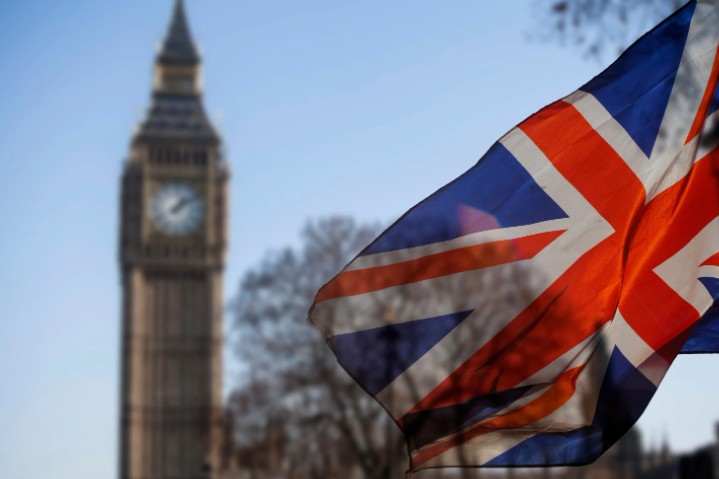As someone who’s lived in the UK all my life, I’ve grown up with the familiar routine: clocks go forward in March and back in October.
Twice a year, we lose or gain an hour. But recently, I’ve been hearing more and more people ask the same thing I’ve been wondering: is the UK going to stop changing the clocks?
Let me break down everything I’ve discovered—from historical reasons to government discussions and what the future might look like.
Why Does the UK Change the Clocks Twice a Year?
What Are British Summer Time (BST) and Greenwich Mean Time (GMT)?
Here in the UK, we follow Greenwich Mean Time (GMT) during winter and British Summer Time (BST) in the warmer months.
When BST kicks in, we put our clocks forward by one hour, giving us more daylight in the evenings.
What’s the Original Purpose of Clock Changes in the UK?
Clock changes began during World War I as a way to conserve fuel and make better use of natural light. The idea was that if we had more daylight in the evenings, we could reduce energy consumption.
Is Daylight Saving Still Relevant in 2025?
In today’s world of smart lighting, remote work, and energy-efficient homes, the need for this seasonal shift is being questioned. Many, like myself, wonder whether the benefits that existed in the past still apply today.
Has the UK Considered Stopping Clock Changes?
What Discussions Have Happened in Parliament?
So far, the UK government hasn’t introduced legislation to abolish the practice. While the topic has come up occasionally in House of Commons debates, it’s never gained enough momentum.
How Has Brexit Impacted UK Time Policy?
Brexit actually gave the UK the freedom to set its own time zone policy. While the EU voted in 2019 to scrap daylight saving, the UK didn’t follow suit and still observes the clock change every March and October.
What About the EU’s Decision to Stop Daylight Saving?
The EU’s plans were delayed by the COVID-19 pandemic and disagreements among member states.
If they do move forward, the UK might find itself out of sync with European neighbours—particularly Ireland, where time alignment matters due to the open border with Northern Ireland.

What Are the Arguments For and Against Clock Changes?
What Are Pros of Daylight Saving Time?
Many still see benefits in keeping the clock change:
- More daylight in the evening boosts mental health and outdoor activity
- Reduction in energy usage (although this is debated)
- Improved traffic safety due to lighter evenings
What Are Cons of Continuing to Change the Clocks?
However, I’ve also come across plenty of arguments against the practice:
- Disturbed sleep patterns and health issues
- Increased risk of accidents and heart attacks around the time change
- Disruption to transport and business schedules
What Do Health Experts and Scientists Say?
Sleep researchers and medical experts largely agree: changing clocks negatively affects our circadian rhythms. The one-hour shift may seem minor, but it can have surprising consequences on health, especially in vulnerable populations.
What Do People in the UK Think About Ending Clock Changes?
Surveys and Public Opinion Trends
A number of surveys suggest that public opinion is divided. Some Brits love lighter evenings in summer, while others hate the disruption twice a year.
According to a 2024 YouGov poll, 41% of UK adults want to stop the time change, while 39% want to keep it, and the rest are unsure.
Businesses and Industries That Care the Most
Industries like agriculture, retail, and transport have strong opinions. Farmers often prefer keeping natural light in the morning, while retail and tourism benefit from evening daylight.
Regional Perspectives – Does Scotland Feel Differently?
Yes, Scotland often raises concerns. In the far north, sunrise can already be as late as 9:30am in winter—pushing clocks forward permanently would mean even darker mornings for much longer, affecting everything from school safety to farm work.

Is the UK Going to Stop Changing the Clocks Anytime Soon?
Has the UK Government Made an Official Decision?
At this point, there are no official plans to stop changing the clocks. The UK government has confirmed it will continue to observe British Summer Time and Greenwich Mean Time as it always has.
Are There Future Plans for Reform?
While nothing is formally proposed, I believe public pressure could push this conversation forward. If more countries abandon daylight saving time, the UK may be forced to re-evaluate.
When Is the Next Clock Change Happening?
Here’s a quick table showing the next few clock changes in the UK:
| Year | Clocks Go Forward (BST Begins) | Clocks Go Back (GMT Returns) |
| 2025 | 30 March 2025 (1am → 2am) | 26 October 2025 (2am → 1am) |
| 2026 | 29 March 2026 | 25 October 2026 |
How Is the Time Change Policies Around the World Compared?
What Are Other Countries Doing?
Here’s a quick glance at how various countries are handling daylight saving time:
| Country | Observes DST? | Notes |
| United States | Yes | Several states pushing to end DST |
| European Union | Yes (for now) | Voted to end it, delayed implementation |
| Russia | No | Abolished DST in 2014 |
| Japan | No | Never adopted DST |
| Australia | Partially | Only some states observe DST |
As you can see, global trends are shifting, and more countries are moving away from seasonal time changes.

Conclusion: Will We Always Change the Clocks in the UK?
As of now, we still change the clocks twice a year, and there’s no sign of that stopping soon. But the debate is far from over.
With the EU preparing to drop daylight saving and global public opinion slowly turning against the idea, I think it’s only a matter of time before the UK reconsiders.
Personally, I wouldn’t mind sticking to one time all year—the back-and-forth just feels outdated. But until change comes, I’ll keep turning my clocks forward and back, like everyone else in Britain.
FAQ: Is the UK Going to Stop Changing the Clocks?
Q1: Will the UK stop daylight saving time in 2025?
No, the UK has no plans to stop the clock change in 2025.
Q2: Why do we still change clocks in the UK?
It’s part of the long-standing policy to maximise daylight during summer through British Summer Time (BST).
Q3: Did the EU end clock changes?
The EU voted to end daylight saving time, but implementation has been delayed. The UK has chosen not to follow that decision post-Brexit.
Q4: What happens if the UK doesn’t follow the EU?
It could lead to time zone mismatches, especially with Ireland, affecting cross-border trade and travel.
Q5: Could clock changes be harmful to health?
Yes, studies show that time shifts can impact sleep, increase accident risk, and even affect heart health.

Leave a Reply